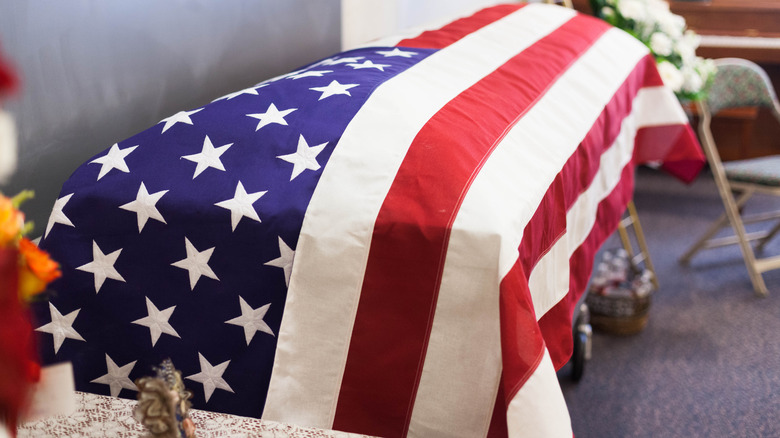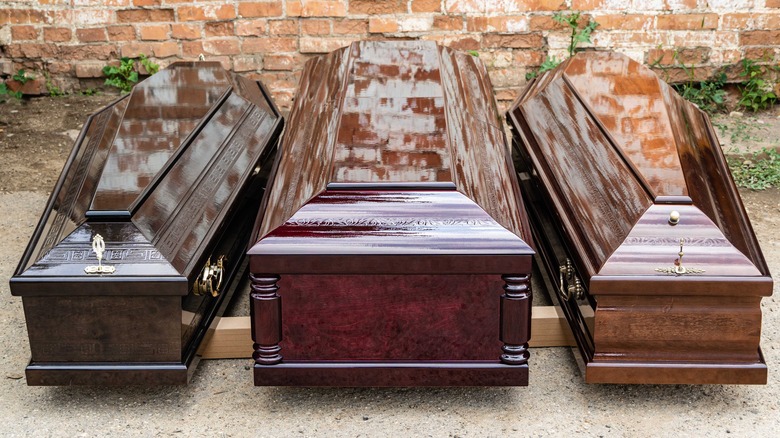What Happens If A US Citizen Dies In Another Country?
Life is fleeting, as an old saying goes, and the best-laid plans of mice and men often go awry, as another old saying goes. Ideally, when someone dies, they should do so with all of their affairs in order, their family having had a chance to say their goodbyes, and near a funeral home that is prepared to handle their final wishes.
Unfortunately, sometimes there can be a wide gap between what is ideal and what actually happens, and this is all particularly true when it comes to death. Not everyone dies at a time or a place that's convenient for their loved ones, and sometimes people die in a foreign country. This is no less true for Americans than people of any other nationality: Although it's exceptionally rare (a few dozen incidents per year, according to Time), Americans do sometimes die while in a foreign country. This brings with it some good news and some bad news. The good news is that, assuming you die in a place with normalized relations with the U.S., the State Department will have your back in crossing all of the T's and dotting all of the I's as far as getting your body home. The bad news is that your family is going to be on the hook for the bill.
The state department has your back
According to the State Department, when an American civilian dies overseas, the agency will act as a sort of intermediary between the deceased's family and the government of the country where they died. Specifically, the Bureau of Consular Affairs will help the deceased's family make arrangements with a local funerary provider to dispose of their remains, and will help the survivors communicate with local authorities as far as getting their corpse, or their ashes, sent home. Once the Bureau has the deceased's (foreign) death certificate, they will produce a Consular Report of the Death of an American Abroad. Further still, if need be, the local consulate will take possession of the deceased's effects (money, clothing, etc.) and return them to their family in the United States.
It does bear noting, however, that local culture and customs, as well as local limitations, will rule the day. The State Department will not, for example, try to force a local funeral home to cremate a deceased American in a country where local custom forbids cremation, for example.
But you'll be on the hook for the bill
While the State Department is glad to help the family of the deceased handle many of the details when it comes to the death of an American abroad, the deceased's family is on their own when it comes to paying the bill. "The Department of State has no funds to assist in the return of remains or ashes of U.S. citizens who die abroad," the agency notes matter-of-factly on its website.
In addition to the costs that may be incurred locally — a coffin, for example, or a cremation and urn — there's the matter of getting the deceased, in whatever form they're in, back home. Strictly by way of example, we note that, according to Everplans, the cost to transport a human body from one funeral home to another can be thousands of dollars, and that says nothing of the cost of putting the body on an airplane.
Long story short: If you're an American your government can and will only go so far in making sure your remains get home, and your family is going to have to foot the bill for the rest.


